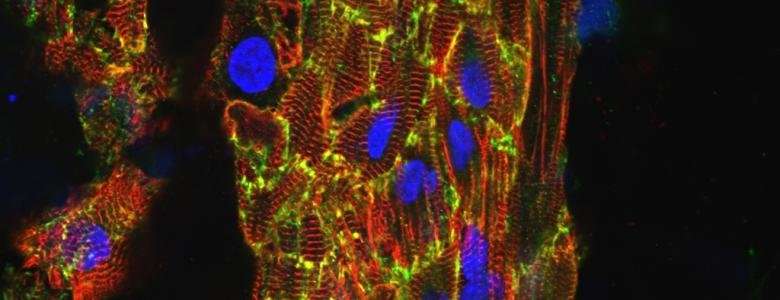Human stem cell research shows new genetic pathway controls the heart beat

New research into human heart development has shed light on the way heart muscle cells contract.
A correctly beating heart is vital to a baby's growth during pregnancy, helping guard against heart defects at birth, which are the most common birth defects.
Using human pluripotent stem cells, a Murdoch Children's Research Institute (MCRI) team showed that a gene called NKX2-5 is responsible for regulating heart rhythm and heart muscle cell development.
The research was published recently in Nature Communications.
The study's lead author, Dr. David Elliott, said variants in the gene cause problems in the human heart's 'electrical system', so patients with NKX2-5 alterations often have to have a pacemaker implanted.
NKX2-5 is known to control when other genes are turned on or off. The researchers also found that NKX2-5 regulates heart muscle cell development by directly controlling another gene called HEY2. Alterations in HEY2 cause Brugada Syndrome, a disease that disrupts the heart's normal rhythm.
"Despite over 20 years of work on NKX2-5 in mouse models, the regulatory relationship between these two genes has not been previously reported. This highlights the importance of using human cells when investigating human disease," Dr. Elliott said.
This groundbreaking work improves our understanding of the genetic control of heart muscle development and identifies a genetic pathway that regulates the heart's electrical conduction system.
This study may lead to new approaches for treating heart disease by targeting the genetic causes of heart disease.

















